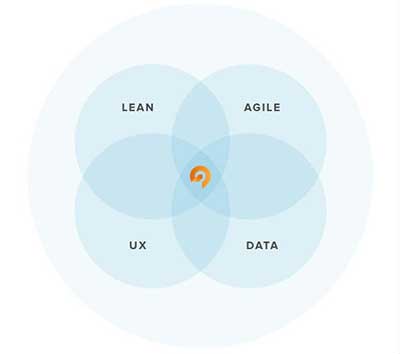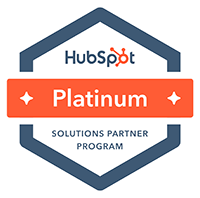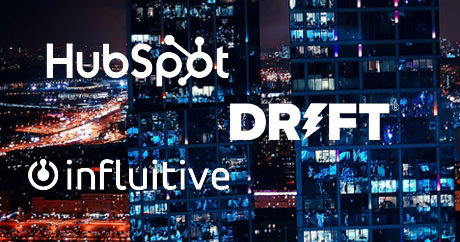With Growth-Driven Design to Data-Driven Web Design
What is Growth-Driven Design?
Growth-Driven Design (GDD) is the name of a progressive approach to website design, creation and optimisation.
You go online with a simplified version of the website. And then follows a continuous development of the website with ongoing optimisation and growth-oriented processes.
The advantages are short project phases, an always up-to-date and flexible website, as well as smaller investments and data-driven decisions.
In just 6 weeks your new, customer-centric web presence can already be online!
Why GDD with HubSpot?
HubSpot is probably the most effective CMS that can and should be used for GDD. The reasons for this include:
- that you can code and design pretty much anything with the CMS,
- with the themes, websites can be changed quickly by drag & drop,
- website evaluations and statistics, as well as campaigns,
- linking with existing tools,
- safe, fast and always up to date...
Why combine GDD and Inbound Marketing?
If you want to get the most out of your marketing activities for your website, then combining Inbound Marketing with Growth-Driven Design is the way to go.
Inbound Marketing provides all the critical elements it takes to drive traffic to your website.
On the other hand, GDD deals with all the behind-the-scenes mechanisms that contribute to your visitors being positively delighted thanks to a perfectly coordinated website.
What is User Experience (UX) and why?
UX is the process of improving user satisfaction by optimising usability, accessibility and the efficiency of the user's interactions with the website.
In GDD, UX is an integral part. Through qualitative research and analysis, the goals, motivations and pain points of users can be observed in action. This is an advantage as it helps to develop an understanding of behaviours associated with collected data.
We build structured websites that encourage your visitors to interact with positive experiences.

"Growth-Driven Design is a smarter way to build websites and achieve optimal results with data."
Growth-Driven Design vs. traditional Web Design
Growth-Driven Design
Is Agile and Customer Centric
A smart approach
- Time and cost investment spread over time
- Quickly online with a prototype
- Based on current data and adapted strategies
- Finished on time and within budget
- Continuous improvement through analysis, feedback, tests, experiments and optimisation
Continuously optimised results
- Data-driven decisions through up-to-date data
- Better results month after month
Traditional Web Design
Is first conceived and then implemented over a period of months
An increased risk
- High time investment and significant immediate costs
- Website, will only be adapted or changed again after approx. 5 years
- Based on old data and strategies without taking changes into account
- Often finished too late and over budget
- Expected results are not achieved
Unpredictable results
- Based on assumptions, old data and strategies
- No further and time optimisation
The three main phases of GDD
(Basisversion)
Strategy
In the strategy phase, the following aspects flow:
- Set company and website goal
- UX (User Experience)
- Create research and task list
- Fundamental assumptions
- Buyer Personae
- Buyer's Journey Mapping
- Website specific strategy
- Create and prioritise wish list
Launch Pad Website
The development phase:
- Conception of a quickly realisable and usable basic version
- Implementation of sprint workshops
- Effective content development
- Investing in internal efficiency improvements (tools, workflows, communication...)
Continuous improvement
These are cyclical and repetitive steps:
- Plan
- Develop
- Learn
- Optimise

12 reasons that speak for a HubSpot CMS
An availability of 99.99 % with backups, defence against threats and abuse as well as standard SSL certificate.
Get data on traffic, dwell time, performance, device types, page views and more to optimise for better results.
Leistungsstarker Drag & Drop Editor: Webseiten einfach im WYSIWYG-Editor (What You See Is What You Get) erstellen und optimieren.
This gives you excellent tools to get visitors to interact with your website and become customers.
With HubSpot CMS, you can easily manage multilingual content and optimise it for your visitors and search engines.
With the integrated A/B tests, you can create up to 5 variants of a website. The software analyses the traffic and determines the best variant.
This allows you to personalise and specifically deliver your content by persona(s), sources or lifecycle phase.
The HubSpot CRM is included free of charge. Contacts can be stored there and segmented for email marketing.
With the functions included in the CMS, HubSpot grants a DSGVO-compliant website.
More informationDynamic content with database support: Create and easily update data tables for web content with HubDB.


